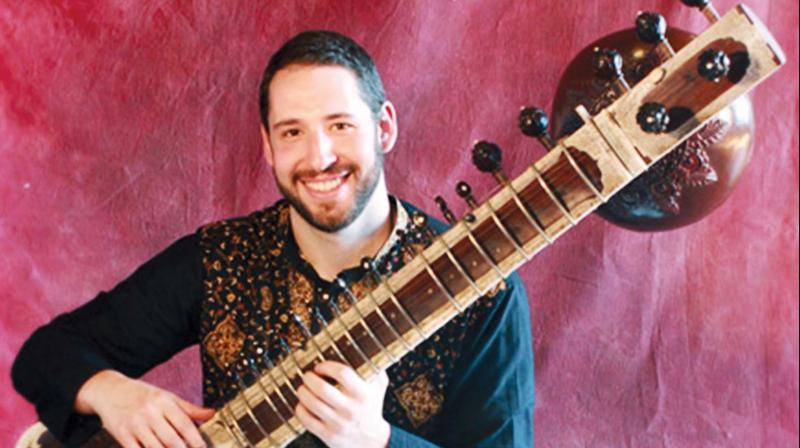Following the classical instinct
American sitar player Josh Feinberg represents the growing diversity of Hindustani music.

Given an opportunity to choose between pursuing music and making a career in physics, the chances are that one would choose physics for stability and better-earning prospects. However, the American sitar player Josh Feinberg left his parents surprised when he chose Indian classical music over physics. He started learning jazz and playing the piano at the age of four, Josh found his true calling for sitar only at the age of 12. It was destiny that introduced him to the music teacher Dan Weiss, who then introduced Josh to Hindustani classical music and sitar. “I fell in love with it then and decided to become a professional musician. If I wasn’t a musician, I would probably be a physicist,” says Josh, who was in Mumbai to perform during a morning concert titled Udayswar on January 20.
Born in a family of musicians, Feinberg’s initial training began with classical piano and violin, however, soon after, he learnt jazz drums and started improvising with Western classical music. But it was after listening to classical music maestros Ustad Ali Akbar Khan and Pandit Nikhil Banerjee, Josh decided to pursue sitar. “The instrument is very beautiful; its music sounds very profound and it has everything that great music should have,” says the musician. He further expounds that sitar has a history of excitement and complexity in its music and its chords provide more room for improvisation and spontaneity. Asked if he ever had any apprehensions about his career choice, he denies saying that he followed his love for music. “It’s like a love marriage. I have fallen in love with someone from a different background, religion, and culture, but we love each other and feel safe. It is a risk which paid off,” reveals Josh.
So far, Josh has travelled across the world for his performances and has lived an eventful life while learning with some of the great musicians in India. During his training in India, Josh recollects receiving a mixed treatment by trainers and fellow students. He recalls that he wasn’t explained his mistake and had to figure out by himself when he observed changes in their attitude. “As a non-Indian, I made a lot of mistakes but not to harm anyone. That’s the difference in both the cultures. In America, if you make a mistake, people will tell you directly, but it was difficult for me to navigate,” he rues. Adding that it was a difficult learning for him, though he’ll keep on making mistakes hoping that people will be compassionate towards him.
In his more than two decades of a journey, Josh is upset by the fact that musicians have chosen to follow the path of flashy techniques and are missing their primary goal of finding substance and depth in the music. “The audience is also getting spread between different cultural organisations, and music has also changed a lot over the years,” he rues. When asked about the response his music receives from the audience abroad, he sounds confident insisting that the audience respects his music and takes him seriously because he plays with heart and soul. “I don’t look like a traditional sitar player,” quips the musician, adding that he is more concerned with the art of music than technique. He concludes by saying, “Technique is merely a tool to express.”

